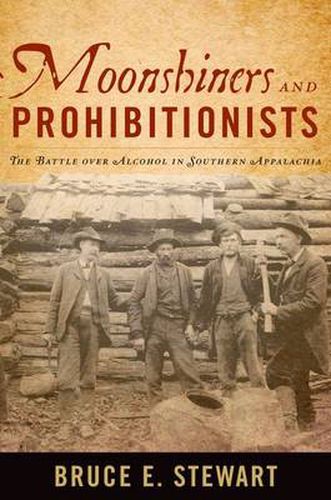Readings Newsletter
Become a Readings Member to make your shopping experience even easier.
Sign in or sign up for free!
You’re not far away from qualifying for FREE standard shipping within Australia
You’ve qualified for FREE standard shipping within Australia
The cart is loading…






Homemade liquor has played a prominent role in the Appalachian economy for nearly two centuries. The region endured profound transformations during the extreme prohibition movements of the nineteenth century, when the manufacturing and sale of alcohol – an integral part of daily life for many Appalachians – was banned. In Moonshiners and Prohibitionists: The Battle over Alcohol in Southern Appalachia, Bruce E. Stewart chronicles the social tensions that accompanied the region’s early transition from a rural to an urban-industrial economy. Stewart analyzes the dynamic relationship of the bootleggers and opponents of liquor sales in western North Carolina, as well as conflict driven by social and economic development that manifested in political discord. Stewart also explores the life of the moonshiner and the many myths that developed around hillbilly stereotypes. A welcome addition to the New Directions in Southern History series, Moonshiners and Prohibitionists addresses major economic, social, and cultural questions that are essential to the understanding of Appalachian history.
$9.00 standard shipping within Australia
FREE standard shipping within Australia for orders over $100.00
Express & International shipping calculated at checkout
Stock availability can be subject to change without notice. We recommend calling the shop or contacting our online team to check availability of low stock items. Please see our Shopping Online page for more details.
Homemade liquor has played a prominent role in the Appalachian economy for nearly two centuries. The region endured profound transformations during the extreme prohibition movements of the nineteenth century, when the manufacturing and sale of alcohol – an integral part of daily life for many Appalachians – was banned. In Moonshiners and Prohibitionists: The Battle over Alcohol in Southern Appalachia, Bruce E. Stewart chronicles the social tensions that accompanied the region’s early transition from a rural to an urban-industrial economy. Stewart analyzes the dynamic relationship of the bootleggers and opponents of liquor sales in western North Carolina, as well as conflict driven by social and economic development that manifested in political discord. Stewart also explores the life of the moonshiner and the many myths that developed around hillbilly stereotypes. A welcome addition to the New Directions in Southern History series, Moonshiners and Prohibitionists addresses major economic, social, and cultural questions that are essential to the understanding of Appalachian history.